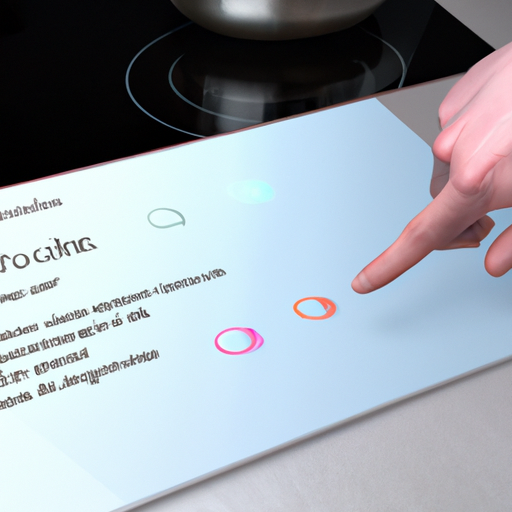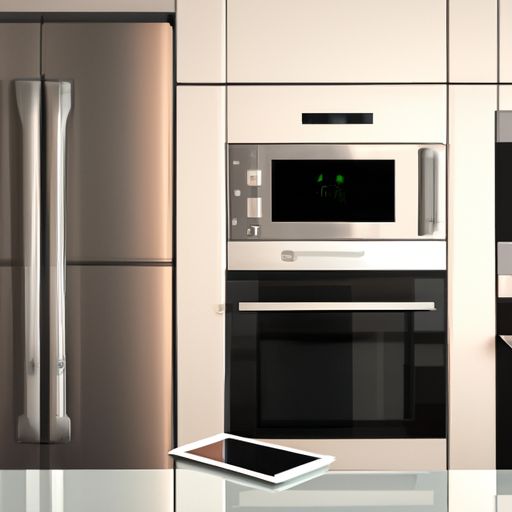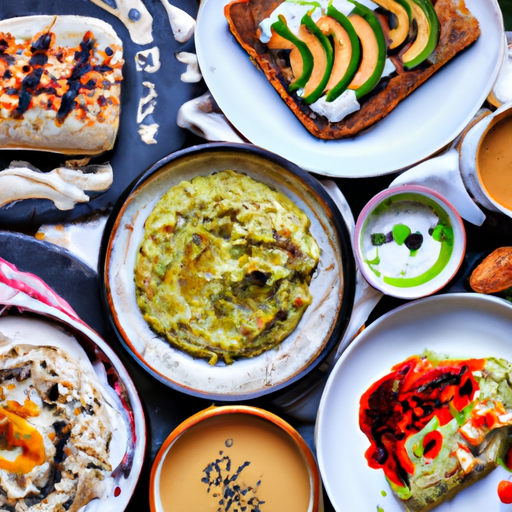Explore how artificial intelligence is transforming modern home kitchens through innovative smart appliances and cooking systems. From precision cooking to automated meal planning, these technologies are making gourmet cooking more accessible than ever. Discover how these advancements are changing the way we approach food preparation and cooking.

The kitchen of the future has arrived, and it's powered by artificial intelligence. Smart kitchen appliances are revolutionizing how we cook, making professional-level results achievable for home cooks while streamlining the entire cooking process. This technological revolution is not just about convenience; it's about precision, consistency, and expanding culinary possibilities.
At the heart of this transformation are smart ovens equipped with advanced sensors and AI-driven cooking algorithms. These ovens can recognize different foods, automatically adjust temperature and cooking modes, and even provide real-time feedback on cooking progress. Some models feature built-in cameras that allow you to monitor your food remotely through smartphone apps, ensuring perfect results every time.
Precision cooktops have also evolved significantly. Induction surfaces with integrated scales can weigh ingredients directly on the cooking surface, while temperature sensors maintain exact heat levels for perfect searing, simmering, or sous-vide cooking. Some systems can even recognize when a pan is about to boil over and automatically adjust the heat to prevent accidents.
Smart refrigerators have become central hubs for kitchen management. With internal cameras and AI-powered inventory tracking, these appliances can monitor food freshness, suggest recipes based on available ingredients, and even automatically generate shopping lists. Some models can detect when supplies are running low and place orders through connected grocery delivery services.
Meal planning and recipe execution have been transformed by AI-powered cooking assistants. These systems can analyze your dietary preferences, restrictions, and available ingredients to suggest personalized recipes. They can also break down complex cooking procedures into simple, step-by-step instructions, complete with video demonstrations and timing alerts.
The integration of voice control technology has made these smart appliances even more user-friendly. Hands-free operation is particularly valuable in the kitchen, allowing cooks to control appliances, set timers, convert measurements, and access recipes while their hands are occupied with food preparation.
Smart scales and thermometers have brought professional-level precision to home cooking. Bluetooth-enabled thermometers can monitor multiple dishes simultaneously, sending alerts to your phone when target temperatures are reached. Smart scales can adjust recipe quantities automatically and ensure precise measurements for baking and other technical cooking processes.
Waste reduction and energy efficiency have also improved through AI integration. Smart appliances can learn your usage patterns and optimize their operation for maximum efficiency. Some systems can even suggest ways to use leftover ingredients and reduce food waste through intelligent recipe recommendations.
The intersection of AI and nutrition has led to innovative features in smart kitchen appliances. Many devices can now provide detailed nutritional information for meals, track dietary intake, and suggest modifications to recipes to align with specific health goals or restrictions.
Food safety has been enhanced through technology as well. Smart sensors can detect when food has spoiled, monitor cooking temperatures to prevent foodborne illness, and ensure proper storage conditions. Some appliances can even track food recalls and alert users to potential safety concerns.
The learning curve associated with these technologies has been significantly reduced through intuitive interfaces and smart learning systems. Many appliances can adapt to your cooking style and preferences over time, providing increasingly personalized recommendations and adjustments.
Connectivity between different appliances has created a more seamless cooking experience. Your smart oven can communicate with your recipe app, which connects to your refrigerator's inventory system, creating an integrated ecosystem that streamlines meal preparation from planning to execution.
While the initial investment in smart kitchen technology can be significant, the long-term benefits in terms of improved cooking results, reduced waste, and time savings make it increasingly attractive for serious home cooks. As these technologies continue to evolve and become more affordable, they are likely to become standard features in modern kitchens.
The future of smart kitchen technology looks even more promising, with developments in areas like 3D food printing, automated cooking systems, and advanced food recognition software. These innovations continue to push the boundaries of what's possible in home cooking, making professional-level culinary techniques more accessible to everyone.



